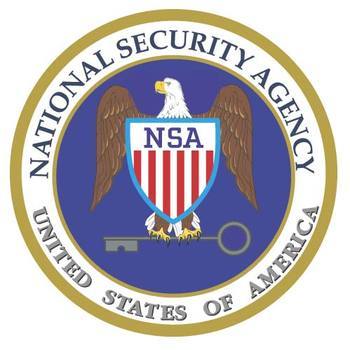NSA Ends Some Data Collection Amidst Privacy Row

The NSA said it will no longer collect communications by US citizens that merely mention foreign surveillance targets, in a win for online privacy
The US’ National Security Agency (NSA) has agreed to rein in some of its most controversial surveillance practices on US citizens following a conflict over privacy issues with a secret court.
The agency confirmed it plans to end the collection of messages that mention a surveillance target outside the US but aren’t directly transmitted to or from that target.
‘Inadvertent’ lapses
The move followed an undisclosed number of incidents in which the NSA admitted to the secret Foreign Intelligence Surveillance Court (FISC) it had accidentally collected information on US citizens that was outside its remit.
The NSA isn’t generally allowed to collect information on US citizens, its remit being limited to targets based outside the US.
![]()
But a 2008 law permits the collection of Americans’ communications without a warrant in cases where a foreign-based target is involved – the Foreign Intelligence Surveillance Act’s (FISA) controversial Section 702.
The NSA said it plans to continue collecting such communications if they are sent directly to or received from a legitimate target, but will not do so if a target is merely mentioned, for instance if a target email address is included in the body of a message.
“Section 702 foreign intelligence surveillance activities will no longer include any upstream internet communications that are solely ‘about’ a foreign intelligence target,” the NSA stated.
Civil liberties groups have long charged that Section 702 led the NSA to broadly scrutinise the communications of US citizens to see whether foreign intelligence targets were mentioned in them.
Legal conflict
The agency stopped short of admitting that collecting “about” communications violated citizens’ rights to privacy, however, saying it was merely reacting to the occurrence of lapses that it described as “inadvertent compliance incidents”.
![]() Section 702 is due to expire at the end of this year, and the US Congress has balked at renewing it without further safeguards being agreed to, in part due to the incoming presidential administration’s conflicts with intelligence agencies.
Section 702 is due to expire at the end of this year, and the US Congress has balked at renewing it without further safeguards being agreed to, in part due to the incoming presidential administration’s conflicts with intelligence agencies.
Civil liberties groups said the move was welcome, but called for further reforms.
“It’s clear that Section 702 must be reformed so that the government cannot collect this information in the future,” said Michelle Richardson of the Center for Democracy and Technology.
“With the 702 reauthorization debate set to unfold in the coming weeks and months, we need to tell Congress to keep fighting to rein in this warrantless spying,” said Kate Tummarello of the Electronic Frontier Foundation (EFF) in a statement.
Do you know all about security in 2017? Try our quiz!